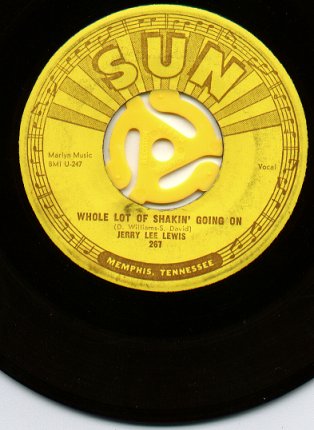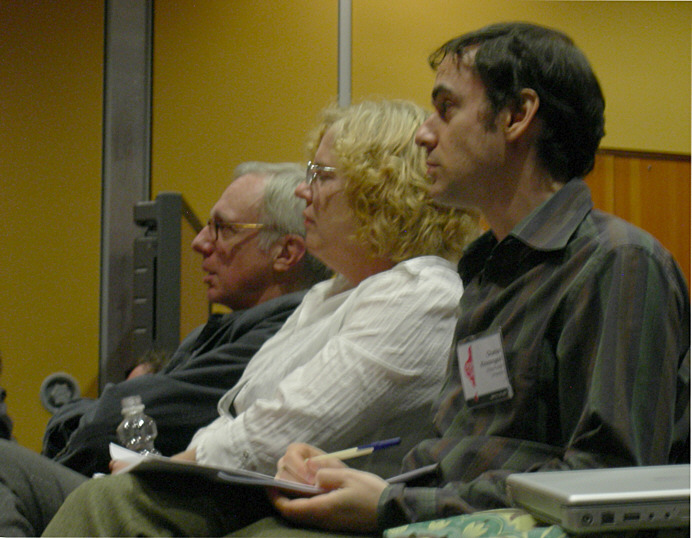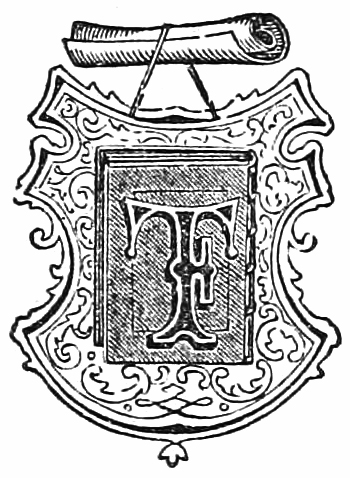|
Jeff Beck Group (album)
''Jeff Beck Group'' is the third and final studio album by the Jeff Beck Group and the second album with the line up of Jeff Beck, Bobby Tench, Clive Chaman, Max Middleton and Cozy Powell. The album was produced by Steve Cropper and often referred to as the ''Orange Album'', because of the orange which appears prominently at the top of the front cover. History During January 1972 the second Jeff Beck Group flew to the US and joined Beck at TMI Studios in Memphis, Tennessee. Some of the songs they worked on were already in their stage act and unlike '' Rough and Ready'' (1971) they also recorded five cover songs for this album, including a new version of Ashford & Simpson's "I Can't Give Back the Love I Feel for You" and Carl Perkins's Sun Records release, "Glad All Over" (1957). The Cropper and Beck collaboration "Sugar Cane" was one of several songs written whilst in the studio. At an "end of recording party", Beck was congratulated by Don Nix on his version of "Going Down" ... [...More Info...] [...Related Items...] OR: [Wikipedia] [Google] [Baidu] |
The Jeff Beck Group
The Jeff Beck Group was a British rock band formed in London in January 1967 by former Yardbirds guitarist Jeff Beck. Their innovative approach to heavy-sounding blues, rhythm and blues and rock was a major influence on popular music. First group The first Jeff Beck Group formed in London in early 1967 and included guitarist Jeff Beck, vocalist Rod Stewart, and rhythm guitarist Ronnie Wood, with bass players and drummers changing regularly. Early bass players were Jet Harris and Dave Ambrose, with Clem Cattini and Viv Prince trying out on drums. The line-up went through months of personnel changes, notably no fewer than four drummers before settling on Aynsley Dunbar and switching Wood to bass. This line-up spent most of 1967 playing the UK club circuit and appeared several times on BBC Radio. Beck signed a personal management contract with record producer and manager Mickie Most, who had no interest in the group, only in Beck as a solo artist. During 1967 the band rele ... [...More Info...] [...Related Items...] OR: [Wikipedia] [Google] [Baidu] |
Sun Records
Sun Records is an American independent record label founded by producer Sam Phillips in Memphis, Tennessee in February 1952. Sun was the first label to record Elvis Presley, Charlie Rich, Roy Orbison, Jerry Lee Lewis, Carl Perkins, and Johnny Cash. Prior to that, Sun had concentrated mainly on African-American musicians because Phillips loved rhythm and blues and wanted to bring it to a white audience. On January 28, 2021, Sun Records was acquired by Primary Wave for $30 million. History Sam Phillips opened his Memphis Recording Service studio on January 3, 1950 at 706 Union Avenue in Memphis. It was founded with the financial aid of Jim Bulliet, one of many record executives for whom Phillips had scouted artists before 1952. In March 1951, Phillips produced " Rocket 88" by Jackie Brenston and his Delta Cats, who were actually Ike Turner and his Kings of Rhythm. Because of Turner's Delta blues connections, he was contracted by Phillips as a talent scout and he was effect ... [...More Info...] [...Related Items...] OR: [Wikipedia] [Google] [Baidu] |
John Mendelsohn (musician)
John Ned Mendelsohn is an American writer, journalist, musician and graphic designer. Biography Mendelsohn, who has sometimes spelled his name as Mendelssohn with two s's, was born in Washington but moved with his parents to southern California aged six months. He lived briefly in the San Fernando Valley, but mostly on the coast, first in Playa del Rey, and later above Pacific Coast Highway just south of Topanga Canyon Boulevard. He studied at the University of California, Los Angeles, thus avoiding military service in the Vietnam War. Mendelsohn began contributing music criticism to the ''Los Angeles Times'' and ''Rolling Stone'' while still a student. Although he was an ardent champion of the Kinks and David Bowie, the best known of these early contributions are his unfavorable reviews of the first two Led Zeppelin albums, which were published in ''Rolling Stone'' in 1969. His review of ''Led Zeppelin II'' displayed the sarcastic wit that became a characteristic of Mendelsoh ... [...More Info...] [...Related Items...] OR: [Wikipedia] [Google] [Baidu] |
Roy Carr
Roy Carr (1945 – 1 July 2018) was an English music journalist, covering pop, rock and jazz. He joined the '' New Musical Express (NME)'' in the late 1960s, and edited ''NME'', '' Vox'' and '' Melody Maker'' magazines. Biography Born in Blackpool, Lancashire, after his family moved there from London during the Second World War, Allan Jones, "Roy Carr: NME/Uncut Legend", ''Uncut'', #256, September 2018, p.112 he was the son of jazz musician and composer Tony Carr, a member of Joe Loss's band and writer of "March of the Mods". Roy Carr started his music career as a member of Blackpool-based band The Executives, who also featured Glenn Cornick. The band supported many leading acts in the mid-1960s, including the Beatles, the Rolling Stones and The Who, and had several unsuccessful singles issued on the Columbia and CBS labels. [...More Info...] [...Related Items...] OR: [Wikipedia] [Google] [Baidu] |
Sounds (magazine)
''Sounds'' was a UK weekly pop/rock music newspaper, published from 10 October 1970 to 6 April 1991. It was known for giving away posters in the centre of the paper (initially black and white, then colour from late 1971) and later for covering heavy metal (especially the new wave of British heavy metal (NWOBHM)) and punk and Oi! music in its late 1970s–early 1980s heyday. History It was produced by Spotlight Publications (part of Morgan Grampian), which was set up by John Thompson and Jo Saul with Jack Hutton and Peter Wilkinson, who left ''Melody Maker'' to start their own company. ''Sounds'' was their first project, a weekly paper devoted to progressive rock and described by Hutton, to those he was attempting to recruit from his former publication, as "a leftwing ''Melody Maker''". ''Sounds'' was intended to be a weekly rival to titles such as ''Melody Maker'' and ''New Musical Express'' (''NME''). ''Sounds'' was one of the first music papers to cover punk. Mick Middl ... [...More Info...] [...Related Items...] OR: [Wikipedia] [Google] [Baidu] |
Charles Shaar Murray
Charles Shaar Murray (born Charles Maximillian Murray; 27 June 1951) is an English music journalist and broadcaster. He has worked on the ''New Musical Express'' and many other magazines and newspapers, and has been interviewed for a number of television documentaries and reports on music. Biography Murray grew up in Reading, Berkshire, England, where he attended Reading Grammar School and learnt to play the harmonica and guitar. His first experience in journalism came in 1970, when he was one of a number of schoolchildren who responded to an invitation to edit the April issue of the satirical magazine '' Oz''. He thus contributed to the notorious Schoolkids OZ issue and was involved in the consequent obscenity trial. He then wrote for '' IT (International Times)'', before moving to the ''New Musical Express'' in 1972 for which he wrote until around 1986. He subsequently worked for a number of publications including '' Q magazine'', '' Mojo'', '' MacUser'', '' New Statesman'' ... [...More Info...] [...Related Items...] OR: [Wikipedia] [Google] [Baidu] |
Oz (magazine)
''Oz'' was an independently published, alternative/ underground magazine associated with the international counterculture of the 1960s. While it was first published in Sydney in 1963, a parallel version of ''Oz'' was published in London from 1967. The Australian magazine was published until 1969 and the British version until 1973. The central editor, throughout the magazine's life in both countries, was Richard Neville. Co-editors of the Sydney version were Richard Walsh and Martin Sharp. Co-editors of the London version were Jim Anderson and, later, Felix Dennis, and then Roger Hutchinson. In both Australia and the UK, the creators of ''Oz'' were prosecuted on charges of obscenity. A 1963 charge was dealt with expeditiously when, upon the advice of a solicitor, the three editors pleaded guilty. In two later trials, one in Australia in 1964 and the other in the UK in 1971, the magazine's editors were acquitted on appeal, after initially being found guilty and sentenced to ha ... [...More Info...] [...Related Items...] OR: [Wikipedia] [Google] [Baidu] |
Music Journalism
Music journalism (or music criticism) is media criticism and reporting about music topics, including popular music, classical music, and traditional music. Journalists began writing about music in the eighteenth century, providing commentary on what is now regarded as classical music. In the 1960s, music journalism began more prominently covering popular music like rock and pop after the breakthrough of The Beatles. With the rise of the internet in the 2000s, music criticism developed an increasingly large online presence with music bloggers, aspiring music critics, and established critics supplementing print media online. Music journalism today includes reviews of songs, albums and live concerts, profiles of recording artists, and reporting of artist news and music events. Origins in classical music criticism Music journalism has its roots in classical music criticism, which has traditionally comprised the study, discussion, evaluation, and interpretation of music that has b ... [...More Info...] [...Related Items...] OR: [Wikipedia] [Google] [Baidu] |
Rolling Stone
''Rolling Stone'' is an American monthly magazine that focuses on music, politics, and popular culture. It was founded in San Francisco, California, in 1967 by Jann Wenner, and the music critic Ralph J. Gleason. It was first known for its coverage of rock music and political reporting by Hunter S. Thompson. In the 1990s, the magazine broadened and shifted its focus to a younger readership interested in youth-oriented television shows, film actors, and popular music. It has since returned to its traditional mix of content, including music, entertainment, and politics. The first magazine was released in 1967 and featured John Lennon on the cover and was published every two weeks. It is known for provocative photography and its cover photos, featuring musicians, politicians, athletes, and actors. In addition to its print version in the United States, it publishes content through Rollingstone.com and numerous international editions. Penske Media Corporation is the current ... [...More Info...] [...Related Items...] OR: [Wikipedia] [Google] [Baidu] |
The Rolling Stone Album Guide
''The Rolling Stone Album Guide'', previously known as ''The Rolling Stone Record Guide'', is a book that contains professional music reviews written and edited by staff members from ''Rolling Stone'' magazine. Its first edition was published in 1979 and its last in 2004. The guide can be seen at Rate Your Music, while a list of albums given a five star rating by the guide can be seen at Rocklist.net. First edition (1979) ''The Rolling Stone Record Guide'' was the first edition of what would later become ''The Rolling Stone Album Guide''. It was edited by Dave Marsh (who wrote a large majority of the reviews) and John Swenson, and included contributions from 34 other music critics. It is divided into sections by musical genre and then lists artists alphabetically within their respective genres. Albums are also listed alphabetically by artist although some of the artists have their careers divided into chronological periods. Dave Marsh, in his Introduction, cites as precedents Le ... [...More Info...] [...Related Items...] OR: [Wikipedia] [Google] [Baidu] |
Ticknor & Fields
Ticknor and Fields was an American publishing company based in Boston, Massachusetts. Founded as a bookstore in 1832, the business would publish many 19th century American authors including Ralph Waldo Emerson, Nathaniel Hawthorne, Henry James, Henry Wadsworth Longfellow, Harriet Beecher Stowe, Henry David Thoreau, and Mark Twain. It also became an early publisher of ''The Atlantic Monthly'' and '' North American Review''. The firm was named after founder William Davis Ticknor and apprentice James T. Fields, although the names of additional business partners would come and go, notably that of James R. Osgood in the firm's later years. Financial problems led Osgood to merge the company with the publishing firm of Henry Oscar Houghton in 1878, forming a precursor to the modern publisher Houghton Mifflin Harcourt. Houghton Mifflin revived the Ticknor and Fields name as an imprint from 1979 to 1989. Company history Early years In 1832 William Davis Ticknor and John Allen bega ... [...More Info...] [...Related Items...] OR: [Wikipedia] [Google] [Baidu] |
Rock Albums Of The Seventies
''Christgau's Record Guide: Rock Albums of the Seventies'' is a music reference book by American music journalist and essayist Robert Christgau. It was first published in October 1981 by Ticknor & Fields. The book compiles approximately 3,000 of Christgau's capsule album reviews, most of which were originally written for his "Consumer Guide" column in ''The Village Voice'' throughout the 1970s. The entries feature annotated details about each record's release and cover a variety of genres related to rock music. Christgau's reviews are informed by an interest in the aesthetic and political dimensions of popular music, a belief that it could be consumed intelligently, and a desire to communicate his ideas to readers in an entertaining, provocative, and compact way. Many of the older reviews were rewritten for the guide to reflect his changed perspective and matured stylistic approach. He undertook an intense preparation process for the book during 1979 and 1980, which temporarily ... [...More Info...] [...Related Items...] OR: [Wikipedia] [Google] [Baidu] |





